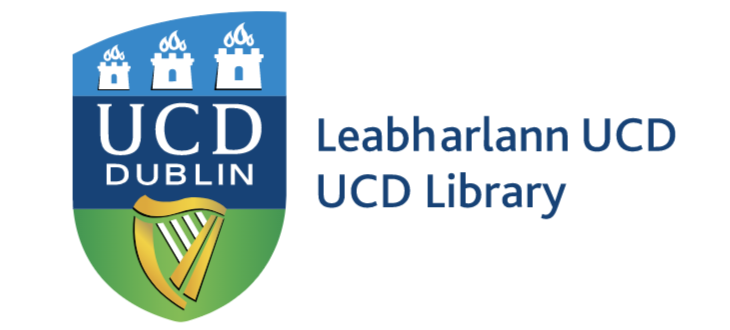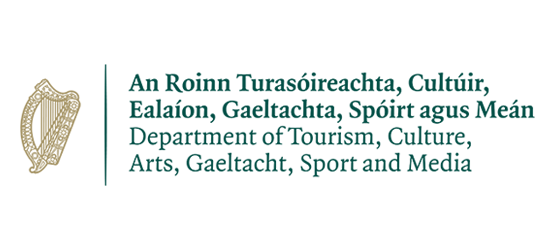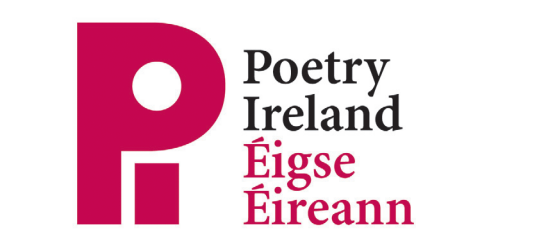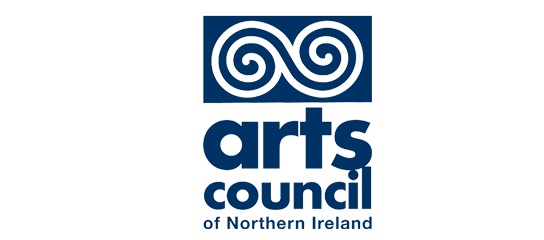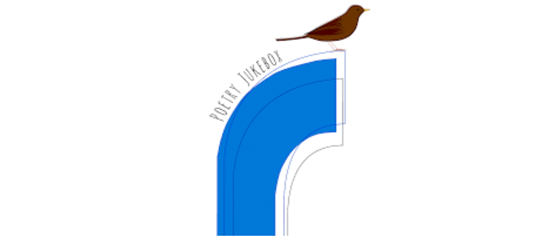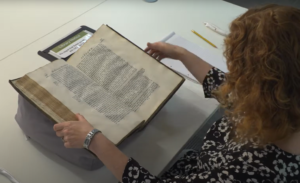
Interacting with special collections and archival materials can be an impactful experience for the user. Turning the pages of a 16th century book, reading a propaganda pamphlet from the Irish revolutionary period, finding notes and inscriptions of a former owner on ephemera and photographs, deciphering the handwriting of famous writer, feeling the texture of the paper, or the smell of an antiquarian book; these multisensory experiences transport users to the time in which the objects were created and provide a link between the creator and the reader.
UCD Special Collections holds a huge variety of primary source material ranging from the 15th century to the 21st. The UCD Cultural Heritage blog regularly features items from these collections which have captured our imagination because of their content or their materiality. Students and scholars who have visited Special Collections have often commented on the impactful the experience of working with these artefacts, be they books, pamphlets, letters, photographs or ephemera.
Our archives and special collections contain powerful contemporary evidence of difficult themes and events in our history such as famine, poverty and war. These can be published or unpublished memoirs giving accounts of an event witnessed or personal letters describing a situation. Sometimes it is the relationships between correspondents, recognised through the way people address each other in their greeting or sign off, that can trigger a reaction. Interaction with sources such as these can provoke an emotional response. This response can in turn generate creativity. Creative writing inspired by archives and ephemera around a particular period or topic will help us to unpack historic events and help us to understand the humanity of the people involved.
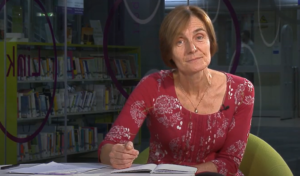
Jane Clarke reading her work at UCD.
The poet Jane Clarke, who has recorded for the Irish Poetry Reading Archive in UCD explained how working with archives and special collections can prompt the creative process.
‘It’s the stories of the individual people in our history that stirs my imaginative and emotional response – which is what I need to get a poem going. When I’m looking for a way to explore these momentous events I read related resource materials, particularly letters, diaries, memoirs. The poet draws on their emotional, intellectual and imaginative response to archival material to write poetry of and out of these lives.’ (Click to listen to Jane Clarke reading ‘In Glasnevin’)
In her book, Spontaneous Particulars: The Telepathy of Archives, published in 2014 Susan Howe describes the experience of finding items within special collections and archives. Her book pertains particularly to the literary papers of great American writers such as Emily Dickinson and William Carlos Williams. While these papers may be catalogued and accessible to users, the experience of being presented with the physical object, boxed carefully for preservation purposes, and made available in an invigilated environment, give the scholar a sense of discovery and privilege. Her very poetic description of this experience gives the sense of a moment of epiphany when there is a creative spark.
‘One historical-existential trace has been hunted, captured, guarded and preserved in aversion to waste by an avid collector, then shut carefully away, outside an economy of use, inaccessible to touch. Now it is reanimated re-collected (recollected) by encounter with the mind of a curious reader, a researcher, an antiquarian, a bibliomaniac, a sub sub librarian, a poet. Each collected object or manuscript is a pre articulate empty theatre where a thought may surprise itself at the instant of seeing.’

Evelyn Flanagan, Head of Special Collections, UCD Library.

